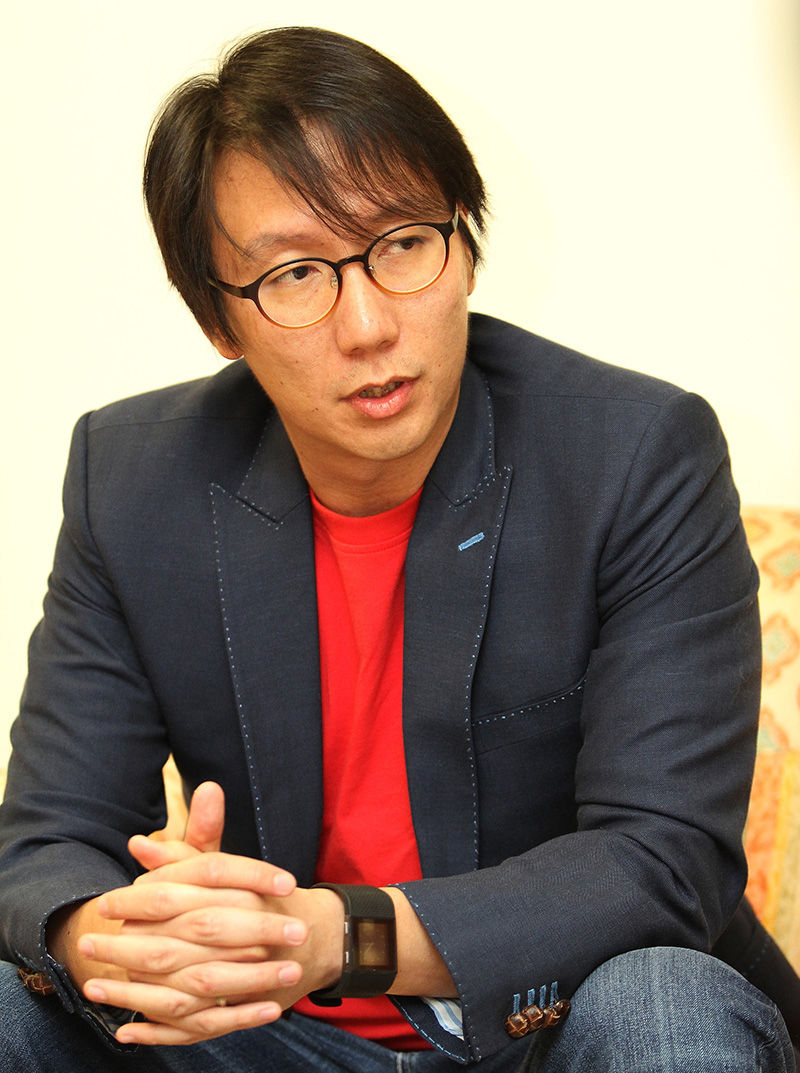Interview with Mr Edward Chia
- Apr 30, 2018
- 6 min read
Timbre Group’s managing director, Mr Edward Chia, was invited as our Guest-of-Honour for College Day last year. He graduated from NJC in 2002. Our students from ELDDES-Editorial conducted an interview with him to find out more about his experiences back in NJC and his views on entrepreneurship. This are the highlights from the interview.

What is one memorable experience you had while you were in NJC?
I really enjoyed my time as a student although it was very short. In my time as a school councillor, organising school events was very memorable. The bad memory was that there was a school event that required a structure that, to me, was cool. It was a metal structure and at a certain point you had this rope that was tracing a certain word. And at a certain point you had to burn the rope and so it kind of burnt a letter. It did its job -- it burnt the letter but we didn’t take into account that the metal plate would have melted at the same time due to the immense heat so the entire structure just collapsed. And then some of my friends of the student council was taking a fire extinguisher trying to extinguish the flame and had to be rushed to the hospital and this was one of the major school events and it was my stupid idea to do that. So that was a bad memory for sure and it really taught me a lesson on leadership as there were true consequences and my friend could have gotten seriously injured. Even though it was “spectacular” as the entire school saw the structure burn down, it was bad memory. But I think it really taught leadership lessons and that there are consequences to my decisions.
At 18 you founded a non-profit organisation, Arts for All. What was the driving force behind that decision?
Really, it was a continuation to what I was doing in student council. As I said just now, back then, we were organising all the school events, so National Day, Teachers’ Day, whatever day we could be organising. I felt it was fun. It was very fulfilling because organising events is one of those low-entry, very easy stuff where you can take an idea and actually come up with a solution. I think we were asked to stand down as student councillors somewhere in the middle of JC2. The objective to us was to study for the A-levels, but I felt that there was still enough time before the A levels, so I said, “Why not take the challenge of organising a school event outside of school?” Because the fact is when you organise any school event, you are still very much protected, by the student council teacher-in-charge, there’s funding you’re getting, et cetera, et cetera. But when you try to do it outside school, you’re kind of on your own, and you need to find your own funding. So, I gathered a few friends from other JCs. There were not many JC2s who wanted to join me; they were all studying for A-levels. There were 2 other friends and we decided to just run with fundraising concert and do it together. I think we raised about seventeen thousand dollars for Children’s Cancer Foundation back then. We felt it was good fun. We were young, we had a lot of energy and we felt that the best way to use this energy is to do something for society. So after the event, some of us had to study for A-levels. Then we realised we had, really, a memorable experience, so why not make this a formal thing – a long term thing or something more regular. That’s how Arts for All got started.

Why did you choose to enter the F&B industry?
That was just stupidity and naiveté. We didn’t know well enough, so we thought, the challenges running non-profit was looking for funding all the time. You look for new events all the time and it was getting a bit tiring. I felt, after a while, like a beggar – begging for new venues and funding. So, we were naive, and we said, “Why not, instead of selling only tickets, we sell food and beverages.” The F&B revenue were used to start an artistic mission and endeavour, and that is how it all began.
It was only after we started that we realised that, “oh my gosh, it is such a difficult business.” But it’s one of those things that when you are committed to it you just have to get on with it, each day you just battle on. To me, personally, it’s also a great challenge – something that’s a bit difficult. You can find ways to make it work through innovation or thinking out of the box – that’s where the real satisfaction comes from at the same time.
Although we think we are a social enterprise, with a social mission, we’re in a very competitive, tough nature of business but we never felt that it was difficult. We just felt that we should keep pushing the boundaries, because I think in any industry, any type of business, if you’re the top industry and you’re an innovator and you’re pushing boundaries, you’ll be fine. You could be a very lucrative industry but if you don’t innovate, you don’t keep this sort of thing relevant, you still might not do very well. So I think it is down to innovation, the need to continue to break boundaries, the need to reinvent the way we do things. And that’s really the vision of Timbre for the last 12 years. Even up to now, we continue pairing what we used to do with something new.

So how has your direction for Timbre changed since you first started?
I think, from a social mission, it has expanded. We started with the mission of developing Singaporean youth. Today we have a new concept, a new dining experience called Timbre+, which is a 20,000 sq. ft. space, so the mission, obviously, has expanded: it’s not just the music anymore, we also want to develop Singaporean culinary talents. Many Singaporeans want their own chef, owners, be their own culinary celebrity chef, so how can we actually help them, how can we promote them? We even do it by means of incubator units so we actually work with ITE College West. Some of the graduates are culinary students, so we have internships. They come to Timbre+ and take up an incubator unit, and in four months we have student entrepreneurs who are sponsored equipment, the school sponsors the initial working capital. If they don’t make money, they don’t get paid. Those are things that we like to do.
So, how has it changed, how has it not changed? I think it has not changed in the sense that we believe that we exist for a mission to develop human potential, of human talent. How has it changed? I think the tap of human talent, because today we are bigger than what we used to be, we have a bit more resources, so the scope has widened. In a nutshell, we want to be there to help the development of human talent in individuals. But we are realistic. We are still a small company, so we can’t go around saying, “Oh, what is your talent? I’ll help you!” We’re very focused. I think, for now, Timbre is music, culinary talent and the other dimension that we hardly ever talk about is really to help people who have made a bad decision in life, go into the prisons, but now they’re out, they’ve served their time, and they want to make their life straight again. They want a sense of certain redemption. We take that need and we try to provide them with a good job, and try to get them onto a certain straight path again. There are times when even before an inmate is discharged from the prison, the manager actually goes into the prison to interview them and hire them. So, even before they’re discharged from the prison, they actually have a job.
Finally, do you have any advice for young aspiring entrepreneurs in NJC?
I think, for new entrepreneurs, the truth is you can’t plan it. There’s absolutely no way that life will go according to plan. The truth on the matter is that I never thought I was going to be an entrepreneur. I didn’t think that being a student council, planning events and having a fundraising concert was part of my entrepreneurship journey. It was never the case. In fact, as I said, it was a non-profit set up to help others. So I would think before even thinking about being an entrepreneur, pursue your passion, pursue your interests. Go for it, develop it into good skills, get really interested and apply yourself. Entrepreneurship, to me, is about action. You have to do some actions. And you have to be very specialised in what you do. I mean, you kind of need to know your stuff. You can choose to do technology or to be a game developer, but it all starts off with your individual passion and interest. Develop that first, and then I think one thing that would be good to have is opportunities. And that’s about it actually.
To read more about Edward Chia, read this Straits Times Interview (2016)
Photo credits: NJ Photographic Society




















Comments